
The history of Africa in antiquity, the middle-ages and the early modern era, and how it intersects with the rest of the world
2 subscribers
How to get URL link on X (Twitter) App

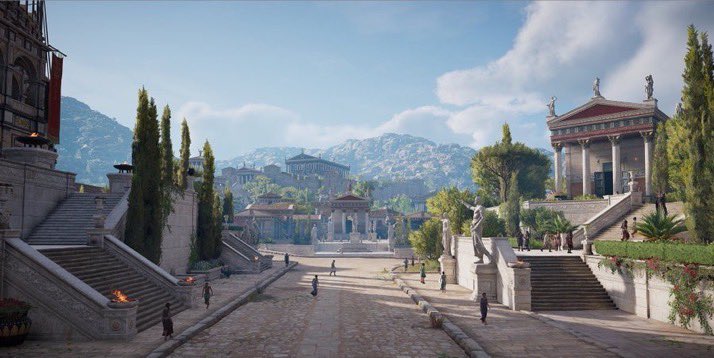
 The city of Cyrene was founded c. 630 B.C. Greek legend claimed that the Greek deity Apollo seduced the huntress Cyrene (from where the city is named) and took her to Libya. A more likely story is the account of Herodotus, who says it was founded by Greeks from the city of Thela who travelled to North Africa after being instructed to by the oracle of Delphi due to overpopulation.
The city of Cyrene was founded c. 630 B.C. Greek legend claimed that the Greek deity Apollo seduced the huntress Cyrene (from where the city is named) and took her to Libya. A more likely story is the account of Herodotus, who says it was founded by Greeks from the city of Thela who travelled to North Africa after being instructed to by the oracle of Delphi due to overpopulation.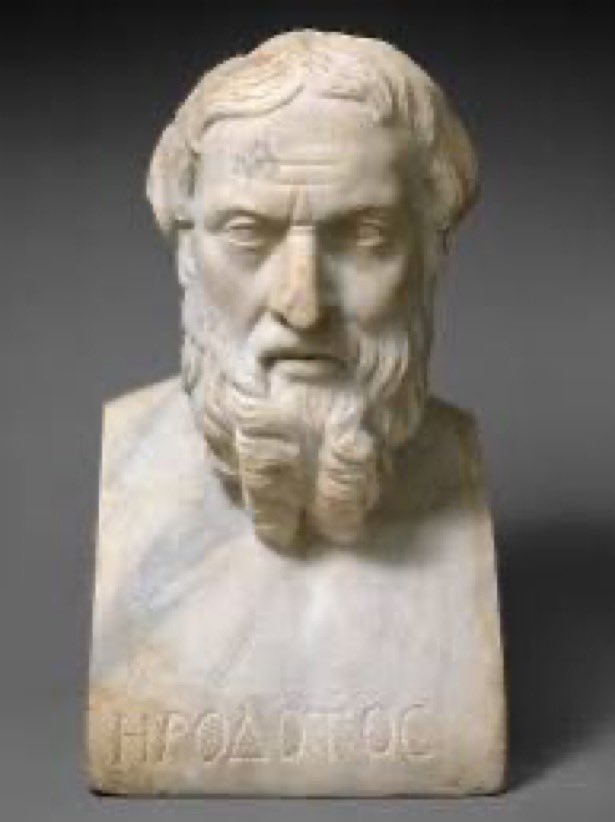

 By 1259 the Mongols had overrun much of the Islamic world. They had conquered Persia, defeated the Seijuks in Anatolia and just a year prior sacked the centre of the Muslim world, Baghdad, killing the caliph and massacring hundreds of thousands of others. They seemed unstoppable, and were determined to march south and expand into the Levant region and Egypt.
By 1259 the Mongols had overrun much of the Islamic world. They had conquered Persia, defeated the Seijuks in Anatolia and just a year prior sacked the centre of the Muslim world, Baghdad, killing the caliph and massacring hundreds of thousands of others. They seemed unstoppable, and were determined to march south and expand into the Levant region and Egypt.

 The Asante people originated from the Acanne region in modern day central Ghana. Rich in gold, this region attracted much attention from European powers such as the Dutch in the 17th century. The region was initially made up of local powers such as the Adansi kingdom, but by the mid-1600s these powers were declining, leaving behind a power vacuum
The Asante people originated from the Acanne region in modern day central Ghana. Rich in gold, this region attracted much attention from European powers such as the Dutch in the 17th century. The region was initially made up of local powers such as the Adansi kingdom, but by the mid-1600s these powers were declining, leaving behind a power vacuum

 After the assassination of Julius Caesar in 44 BC, war broke out between the populares faction led by Mark Antony and Caesars adopted son Octavian, and the optimates led by Cassius Longinus and Brutus. The war was closely fought but by 42 BC Octavian and Antony were victorious. Despite this, neither of the two liked each other and agreed to split the republic between them
After the assassination of Julius Caesar in 44 BC, war broke out between the populares faction led by Mark Antony and Caesars adopted son Octavian, and the optimates led by Cassius Longinus and Brutus. The war was closely fought but by 42 BC Octavian and Antony were victorious. Despite this, neither of the two liked each other and agreed to split the republic between them

 By 1324, Mansa Musa had been in power for a decade. A wealthy man, his reign had seen a time of stability for his empire. His position secured, he decided the time had come to perform the customary Haji to Mecca
By 1324, Mansa Musa had been in power for a decade. A wealthy man, his reign had seen a time of stability for his empire. His position secured, he decided the time had come to perform the customary Haji to Mecca 

 After Augustus conquered Egypt and annexed it to the Roman state in 30 B.C, the newly formed empire now had a border with the neighbouring kingdom of Kush to the south (Nubia). The first Roman prefect of Egypt, Gallus, attempted to establish hegemony over them. To this end he began military raids against them to force them to pay tribute. Outright annexation seems unlikely, but he likely hoped he could force them into client status as with Mauretania. However, the Kushites proved to be tougher nuts to crack than expected.
After Augustus conquered Egypt and annexed it to the Roman state in 30 B.C, the newly formed empire now had a border with the neighbouring kingdom of Kush to the south (Nubia). The first Roman prefect of Egypt, Gallus, attempted to establish hegemony over them. To this end he began military raids against them to force them to pay tribute. Outright annexation seems unlikely, but he likely hoped he could force them into client status as with Mauretania. However, the Kushites proved to be tougher nuts to crack than expected.

 Most of what we know about Adrian comes from the 7th century English monk and historian Bede and his Ecclesiastical History. Bede tells us little about our protagonists early life, simply that he was North African by birth, suggesting he was very likely Berber. From what we do know however we are able to guess Adrian was likely born c. 630-640, in Cyrenaica in Libya, then moved to Italy at a young age. Though Bede doesn’t say this it is very possible he was one of many refugees who fled North Africa to escape the upheaval caused by the Arab conquests
Most of what we know about Adrian comes from the 7th century English monk and historian Bede and his Ecclesiastical History. Bede tells us little about our protagonists early life, simply that he was North African by birth, suggesting he was very likely Berber. From what we do know however we are able to guess Adrian was likely born c. 630-640, in Cyrenaica in Libya, then moved to Italy at a young age. Though Bede doesn’t say this it is very possible he was one of many refugees who fled North Africa to escape the upheaval caused by the Arab conquests

 The Mamluks were essentially non-Arabic slaves who had been given military training which allowed them to play a major role in the military apparatus of their respective empires. Their ethnicity varied, with many being of Turkic, Circassian or Southeastern European descent. The Ayyubid dynasty in particular employed large numbers of these slave soldiers in their service, the sultans having their own Mamluk corps
The Mamluks were essentially non-Arabic slaves who had been given military training which allowed them to play a major role in the military apparatus of their respective empires. Their ethnicity varied, with many being of Turkic, Circassian or Southeastern European descent. The Ayyubid dynasty in particular employed large numbers of these slave soldiers in their service, the sultans having their own Mamluk corps

 The Songhai people originated in the Kuiya region in central Mali in the latter part of the 1st millennium BC. A relatively obscure people, they were a minor kingdom by the 11th century, centred in the city of Gao. The expanding Mali empire would conquer them in the 14th century, but within a hundred years this empire was beginning to fracture and splinter, and the small Gao kingdom would use this opportunity to reassert their independence
The Songhai people originated in the Kuiya region in central Mali in the latter part of the 1st millennium BC. A relatively obscure people, they were a minor kingdom by the 11th century, centred in the city of Gao. The expanding Mali empire would conquer them in the 14th century, but within a hundred years this empire was beginning to fracture and splinter, and the small Gao kingdom would use this opportunity to reassert their independence

 The city of Tripoli was controlled by multiple local dynasties for centuries, before being conquered by Spain in 1510. The Spanish would keep it for 20 years, before in 1530 gifting it to the Knights Hospitaller military order, which had been expelled from their prior base of Crete by the Ottomans some years prior.
The city of Tripoli was controlled by multiple local dynasties for centuries, before being conquered by Spain in 1510. The Spanish would keep it for 20 years, before in 1530 gifting it to the Knights Hospitaller military order, which had been expelled from their prior base of Crete by the Ottomans some years prior.

 By the late 8th century BC the ancient kingdom of Egypt was well past its glory days. Weak and fragile, it was vulnerable to enemies and rivals within and without. One of the latter would seize the moment to strike.
By the late 8th century BC the ancient kingdom of Egypt was well past its glory days. Weak and fragile, it was vulnerable to enemies and rivals within and without. One of the latter would seize the moment to strike. 

 By the 1260s, the Crusader states in the Levant had remained mostly unchanged for the last 80 years. They had stabilised from the disastrous battle of Hattin and fall of Jerusalem in 1187, and while they were unable to permanently retake the golden jewel, were in many ways as strong as they had been before that fateful defeat
By the 1260s, the Crusader states in the Levant had remained mostly unchanged for the last 80 years. They had stabilised from the disastrous battle of Hattin and fall of Jerusalem in 1187, and while they were unable to permanently retake the golden jewel, were in many ways as strong as they had been before that fateful defeat
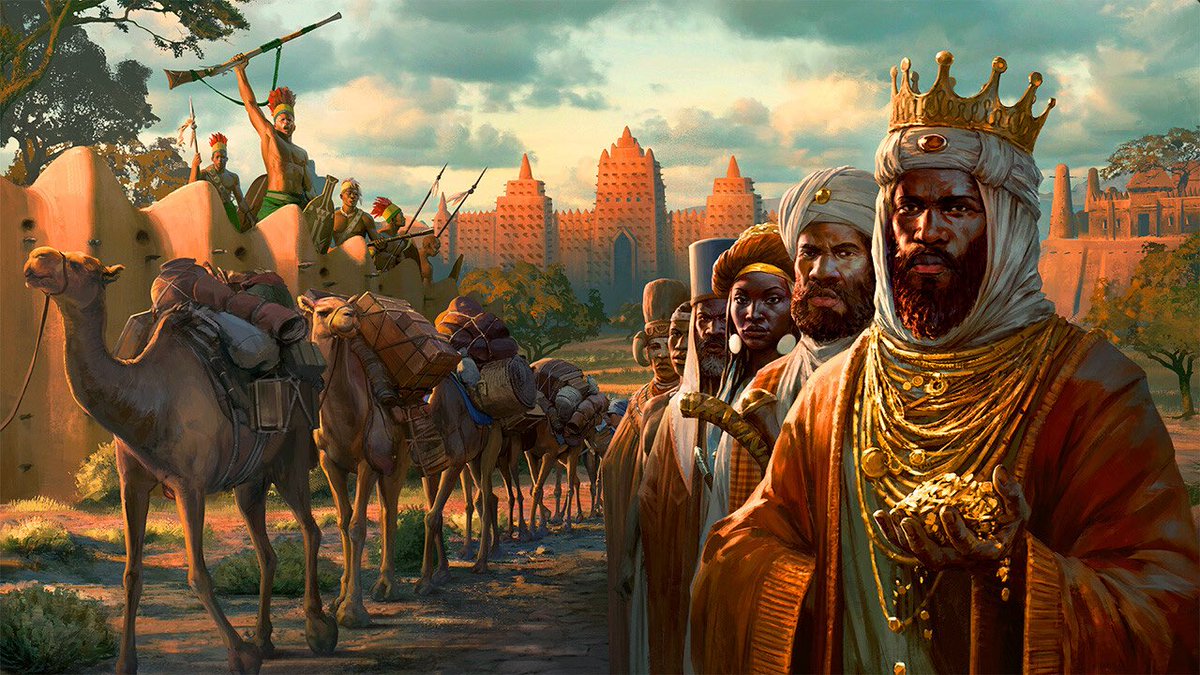
 The Mail empire is one of those states where the origin date is impossible to pin down specifically. What we do know is that it began as a small kingdom of the Mandbe people in what is now southern Mali in the 11th century. Around this time, the Arab historian Al-Bakri says a ruler from the ‘Malal’ kingdom in a similar region converted to Islam, suggesting it was beginning the process of adopting the religion that would define it (though as we’ll see later the exact time at which its rulers adopted Islam is disputed).
The Mail empire is one of those states where the origin date is impossible to pin down specifically. What we do know is that it began as a small kingdom of the Mandbe people in what is now southern Mali in the 11th century. Around this time, the Arab historian Al-Bakri says a ruler from the ‘Malal’ kingdom in a similar region converted to Islam, suggesting it was beginning the process of adopting the religion that would define it (though as we’ll see later the exact time at which its rulers adopted Islam is disputed).

 By the end of 47 BC, Julius Caesar was in the strongest position he’d been in years. His main rival Pompey was dead, he’d survived an adventure in Egypt with his client (and lover) Cleopatra and taken the big prize of Rome, implementing numerous reforms incl the introduction of a new calendar. Things looked good, but the optimates he was fighting were down but not out and had regrouped in North Africa.
By the end of 47 BC, Julius Caesar was in the strongest position he’d been in years. His main rival Pompey was dead, he’d survived an adventure in Egypt with his client (and lover) Cleopatra and taken the big prize of Rome, implementing numerous reforms incl the introduction of a new calendar. Things looked good, but the optimates he was fighting were down but not out and had regrouped in North Africa.

 In the mid 1270s BC, Ramasses II had just began what would be a 65 year reign. In his early 20s and eager to make a name for himself, he decided an easy way to do so would be to go to war with his kingdom’s main opponent at the time, the Hittite empire.
In the mid 1270s BC, Ramasses II had just began what would be a 65 year reign. In his early 20s and eager to make a name for himself, he decided an easy way to do so would be to go to war with his kingdom’s main opponent at the time, the Hittite empire. 
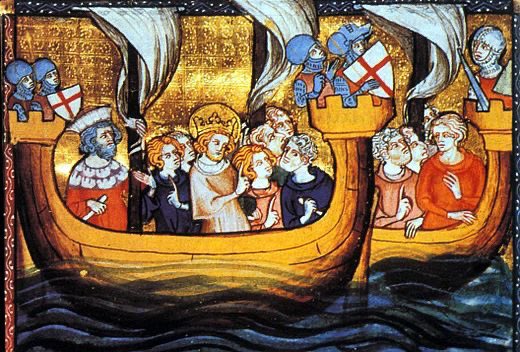
 In 1244, the 15 year truce between the Kingdom of Jerusalem and the Ayyubid Sultanate whereby the latter had given the former temporary control of Jerusalem and several other cities expired. The sultanate retook the great city, and killed a number of Christian inhabitants while doing so before desecrating several of their holy sites in the city including the Church of the Holy Sepulchre
In 1244, the 15 year truce between the Kingdom of Jerusalem and the Ayyubid Sultanate whereby the latter had given the former temporary control of Jerusalem and several other cities expired. The sultanate retook the great city, and killed a number of Christian inhabitants while doing so before desecrating several of their holy sites in the city including the Church of the Holy Sepulchre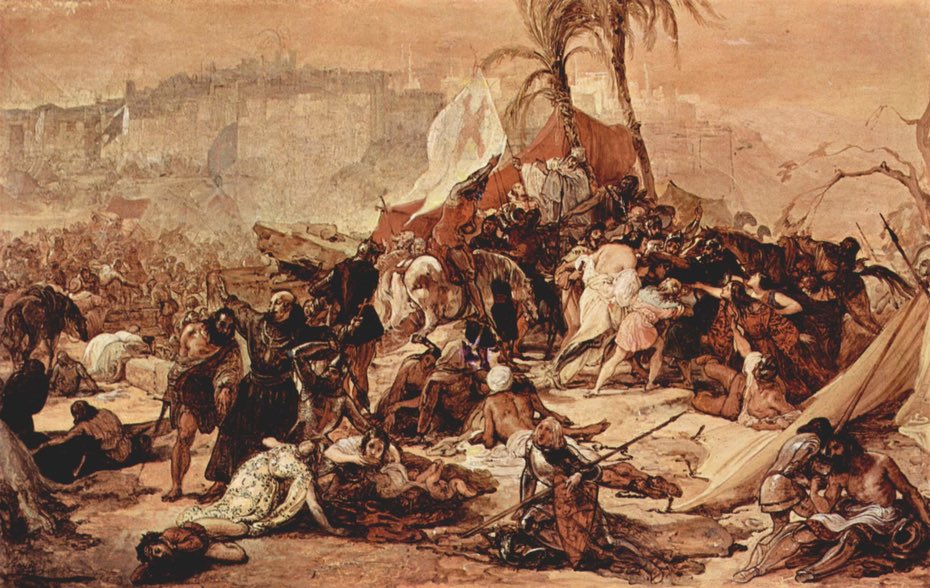

 By the 270s B.C, the Roman Republic had expanded from the city state of Rome itself to encompass much of the Italian peninsula. It had just repulsed a hard fought effort by the Epiran king Phyrrus to destroy it, and sort to gain the status of regional hegemon. This would call it to run into trouble with a power opposite the Mediterranean.
By the 270s B.C, the Roman Republic had expanded from the city state of Rome itself to encompass much of the Italian peninsula. It had just repulsed a hard fought effort by the Epiran king Phyrrus to destroy it, and sort to gain the status of regional hegemon. This would call it to run into trouble with a power opposite the Mediterranean.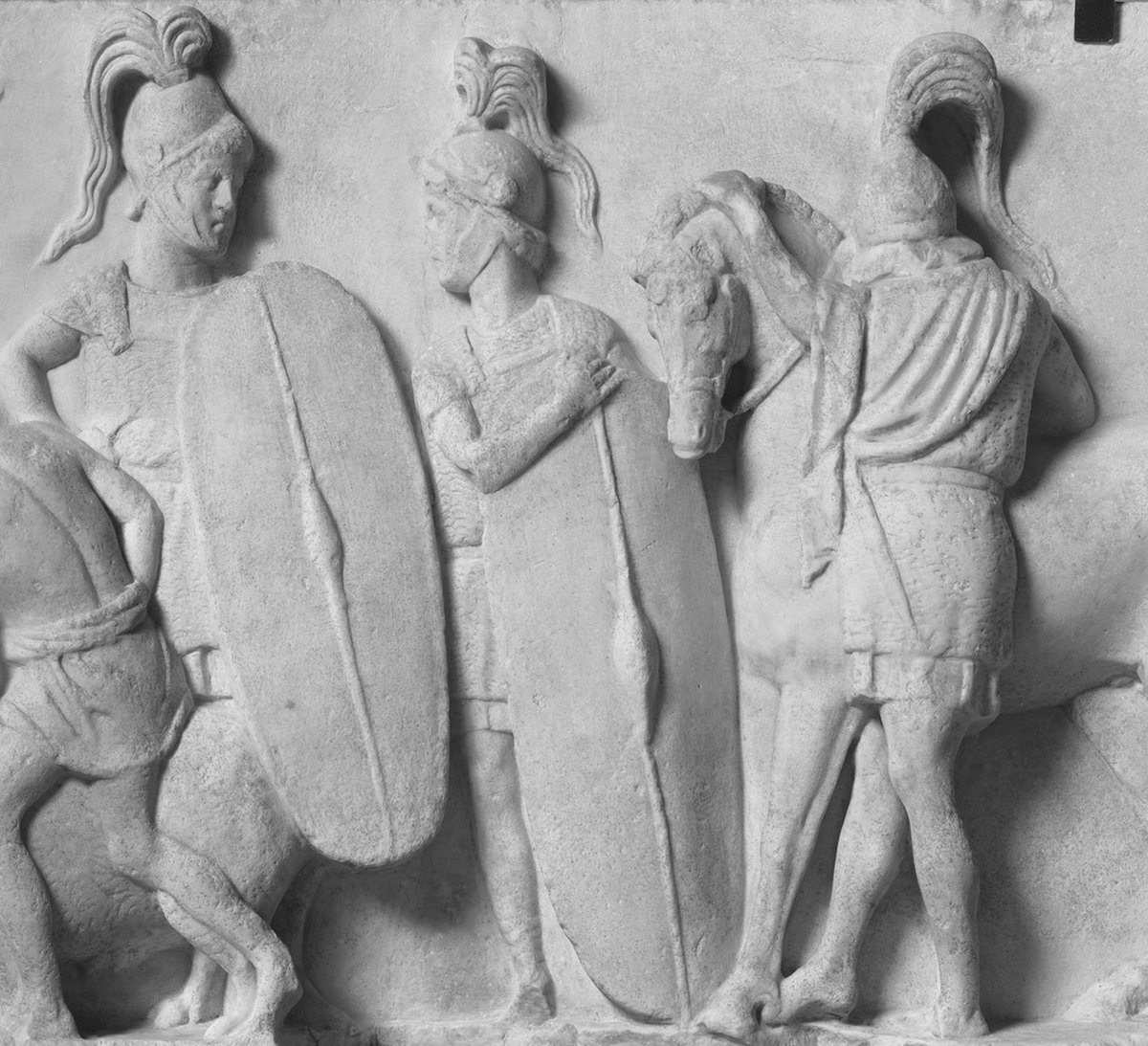

 By the early 1600s the Portuguese were well established in central Africa, having established key trading relationships with Kingdoms like the Kongo and Ndongo (corresponding to parts of the modern Congo republics and Angola). They had overseen their conversion to Catholicism as well, and a symbiotic relationship existed whereby the Portuguese traded and received local goods from these states in return for providing them New World goods like corn.
By the early 1600s the Portuguese were well established in central Africa, having established key trading relationships with Kingdoms like the Kongo and Ndongo (corresponding to parts of the modern Congo republics and Angola). They had overseen their conversion to Catholicism as well, and a symbiotic relationship existed whereby the Portuguese traded and received local goods from these states in return for providing them New World goods like corn.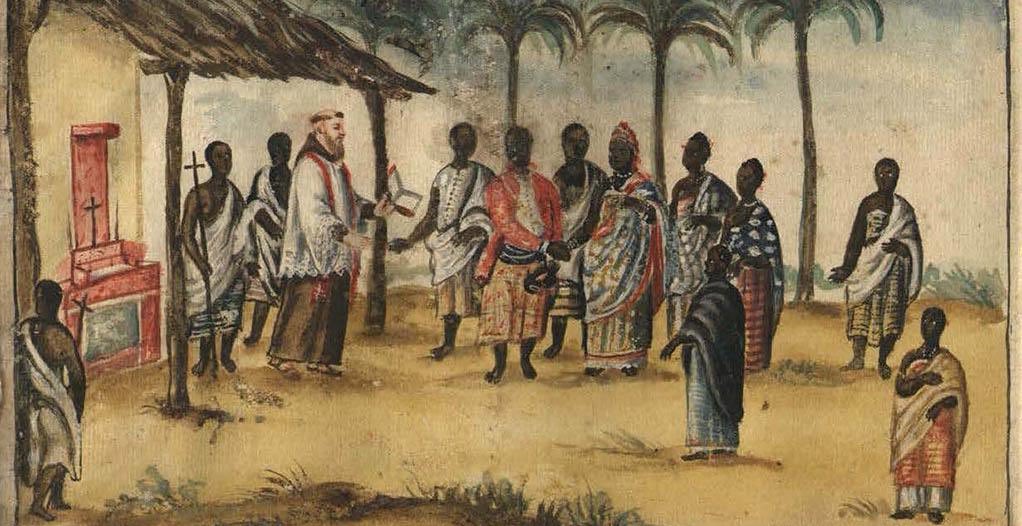

 By the late 800s, the Islamic world was becoming fractured. The Abbasid Caliphate in Baghdad still claimed sovereignty over the Islamic community (Ummah) but this claim was unrecognised in Spain and becoming increasingly nominal elsewhere. In the Maghreb several dynasties such as the Aglabhids and the Idrisids operated as de facto independent states. It was into this world the Fatimids emerged.
By the late 800s, the Islamic world was becoming fractured. The Abbasid Caliphate in Baghdad still claimed sovereignty over the Islamic community (Ummah) but this claim was unrecognised in Spain and becoming increasingly nominal elsewhere. In the Maghreb several dynasties such as the Aglabhids and the Idrisids operated as de facto independent states. It was into this world the Fatimids emerged.

 By 500 AD, the Kingdom of Askum in modern Ethiopia had been Christian for 150 years, while the Kingdom of Himyar in modern Yemen had adopted Judaism roughly 120 years prior. To fully describe the beliefs in Arabia would go beyond the scope of this thread but suffice to say there were a mix of pagan religions and beliefs, as well as minorities of various Christian and Jewish sects, both orthodox and heretical. Being separated by the Arabian Sea, both kingdoms had been mostly content to let the other practice their religion in peace. However, that was about to change.
By 500 AD, the Kingdom of Askum in modern Ethiopia had been Christian for 150 years, while the Kingdom of Himyar in modern Yemen had adopted Judaism roughly 120 years prior. To fully describe the beliefs in Arabia would go beyond the scope of this thread but suffice to say there were a mix of pagan religions and beliefs, as well as minorities of various Christian and Jewish sects, both orthodox and heretical. Being separated by the Arabian Sea, both kingdoms had been mostly content to let the other practice their religion in peace. However, that was about to change.
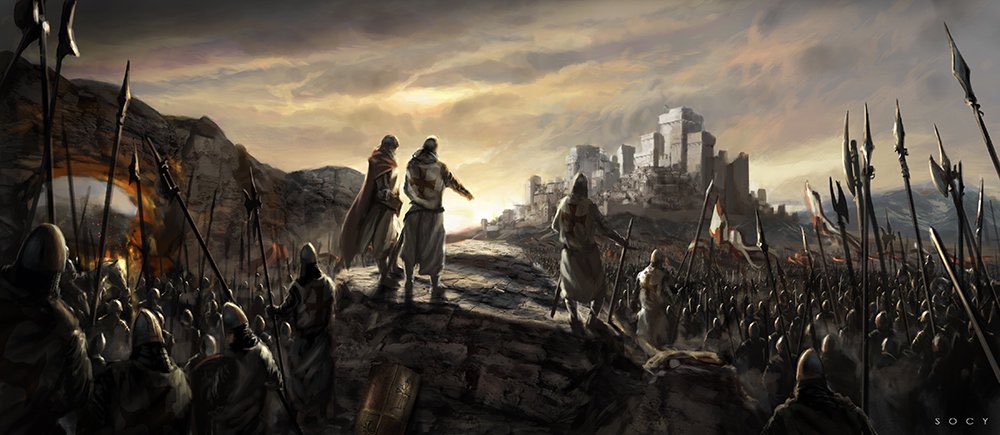
 In early 1222, the final of the Crusaders from the 5th Crusade debacle returned to Europe. Many were demoralised by the failure of the effort, and looked for someone to blame. The Holy Roman Emperor Frederick II made for a convenient scapegoat.
In early 1222, the final of the Crusaders from the 5th Crusade debacle returned to Europe. Many were demoralised by the failure of the effort, and looked for someone to blame. The Holy Roman Emperor Frederick II made for a convenient scapegoat. 